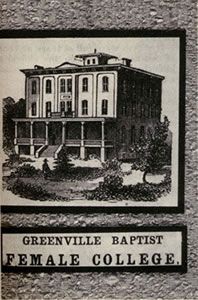 Their spirits bolstered by victory at the skirmish known as the Battle of Blackburn’s Ford, Confederate forces, anticipating a clash with U.S. Brig. Gen. Irvin McDowell’s 35,000 troops, begin consolidating in preparation. Some troops arrive in the Manassas area by train, the first time in history for troops to be transported by train.
Their spirits bolstered by victory at the skirmish known as the Battle of Blackburn’s Ford, Confederate forces, anticipating a clash with U.S. Brig. Gen. Irvin McDowell’s 35,000 troops, begin consolidating in preparation. Some troops arrive in the Manassas area by train, the first time in history for troops to be transported by train.
Meanwhile, in towns throughout the South, women are forming Aid Associations to help meet the needs of Confederate soldiers. One such association is today formed in Greenville, South Carolina: the Greenville Ladies Association in Aid of Volunteers of the Confederate Army is organized to assist Greenville’s soldiers and others passing through the city.
The Greenville Baptist Female College plays an important role in the city-wide, non-denominational organization. While the wife of a Methodist minister is elected as president of the association, the girls of the Female College remodel a campus building into a place of refuge and rest for traveling Confederate soldiers. During the war, each day one of the college girls waits at the train station for tired and hungry soldiers. The college women minister to the soldiers, providing them with a bed and food to help them regain their health before returning to the battlefield.
While the Female College remains open during the war years, nearby Baptist’s Furman University is effectively closed this summer, and no students show up for classes in the fall. Furman does not reopen until the war is over.
South Carolina is where the war began, in the form of the state’s secession from the United States. Now, South Carolinian women take it upon themselves to support their men. Their ministrations will be much needed in the coming years.
Sources: Archie Vernon Huff, Greenville: The History of the City and County in the South Carolina Piedmont (Columbia, SC: Greenville Historical Society, 1995), pp. 137-138 (link); “Life at Greenville Baptist Female College,” Furman University Special Collection and Archives (link)


